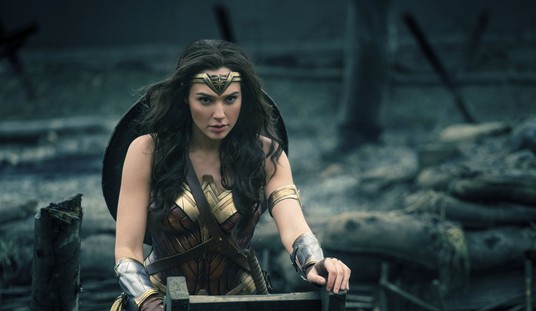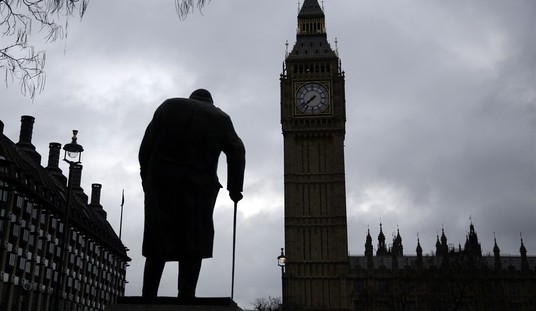“If you survived a plane crash, how would you behave?” Julia Prodis Sulek of the San Jose Mercury News found that the survivors of Asiana Flight 214 responded variously to the situation of finding themselves in a plane wreck. Some men stepped on prostrate women and children in their haste to escape the broken fuselage. Others just seemed to become preternaturally calm, as if transported to “bullet time” and began helping others escape before themselves. The article concluded that “past disasters reveal interesting patterns of behavior. During the Colorado shooting rampage a year ago at the midnight screening of ‘The Dark Knight Rises,’ three men, including two with military training, were killed while shielding their girlfriends.” Others ran as fast as their heels could carry them.
Just which of the two archetypes one turns out to be is revealed on the day. We typically call those who help others at the risk to themselves as heroes. One of the more interesting questions is whether heroes are born or are made. Professor Deane Aikins, a psychiatrist at Yale University, thinks they are born.
His findings, based on research with the military, found that some individuals did not panic because their body naturally protected them.
Unlike the majority of people who were flooded with a stress hormone, they had much lower levels and also showed signs of another hormone that actually calmed them down.
He referred to Chesley Sullenberger, the pilot of the aeroplane that was successfully landed on the Hudson River in New York last month, as an example.
“There are some individuals who when confronted with extreme stress their hormone profile is rather unique,” he said.
“It doesn’t reach the same peak as the rest of us. So we’re all ready to scream in our chairs, but there are certain individuals who just don’t get as stressed.
“Their stress hormones are lower and the peptides that down-regulate that stress are higher, so you can see in action the hormonal regular system really hitting overdrive.
“Certain people are cooler under pressure and they perform very, very well during these periods of time.”
In other words some people are born brave. That would certainly go a long way toward explaining individuals like Adrian Carton de Wiart.
Sir Adrian Paul Ghislain Carton de Wiart VC, KBE, CB, CMG, DSO (5 May 1880 – 5 June 1963), was a British Army officer of Belgian and Irish descent. He served in the Boer War, First World War, and Second World War; was shot in the face, head, stomach, ankle, leg, hip, and ear; survived a plane crash; tunnelled out of a POW camp; and bit off his own fingers when a doctor refused to amputate them. He later wrote that “Frankly I had enjoyed the war” when describing his service in the First World War.
Because wartime creates such a large sample of perilous situations, it throws up data from the tails of the curve. We find from the data that there are apparently people so constituted they will literally die before giving up. Quitting is not in their vocabulary. But we might not have found out if they had continued in their peacetime occupations where the characteristic would never emerge.
One such person was Douglas Bader. After a pre-war crash in which he lost both his legs, Bader requalified as a pilot to become a leading RAF ace during the Second World War. Shot down over France he made so many attempts at escape that he was eventually incarcerated in Colditz Castle for the remainder of the war.
People like de Wiart and Bader seem almost pathologically brave, though admittedly “pathological” is probably the wrong word to use. But “unusually” is certainly accurate.
One factor which Professor Aikins might have neglected in his study of heroes was the role formerly played by social pressure and self-esteem in maintaining “manly” behavior. A century ago people were not always brave, but they were expected to be. When Robert Falcon Scott and his men faced certain death during the Antarctic expedition he penned a letter which he must have known would their obituary. In it he expressed careless indifference to impending doom. “Well dear heart I want you to take the whole thing very sensibly as I am sure you will – the boy will be your comfort I had looked forward to helping you to bring him up but it is a satisfaction to feel that he is safe with you.”
For it was then commonly thought that while men died to die like a British officer and a gentleman was a thing that not everyone could carry off with aplomb. And Scott did it in the approved style.
oh dear me you must know that quite the worst aspect of this situation is the thought that I shall not see you again – The inevitable must be faced – you urged me to be leader of this party and I know you felt it would be dangerous – I’ve taken my place throughout, haven’t I? God bless you my own darling I shall try and write more later – I go on across the back pages …
There is a piece of the Union flag I put up at the South Pole in my private kit bag together with Amundsen’s black flag and other trifles – give a small piece of the Union flag to the King and a small piece to Queen Alexandra and keep the rest a poor trophy for you! – What lots and lots I could tell you of this journey.
Even in our modern age, when such attitudes are positively scorned by the PC crowd — had Scott done this today he would have been pilloried by feminists and hounded by lawyers — there is still some residual burden of heroism. The story of Rick Rescorla’s efforts on 9/11 come to mind. First of all he unquestionably fit the mold of a hero.
Rescorla was sent to Vietnam, where he served under the command of Lieutenant General Hal Moore. The two participated in the 1965 Battle of Ia Drang, which Moore would later describe in a 1992 book he co-authored We Were Soldiers Once… And Young, (from which the 2002 Mel Gibson film We Were Soldiers would be adapted). Rescorla is the soldier pictured on the book jacket cover. Co-author Lieutenant General Hal Moore described him as “the best platoon leader I ever saw”. Rescorla’s men nicknamed him “Hard Core” for his bravery in battle, and revered him for his good humor and compassion towards his men. He is also mentioned in the book Baptism by Larry Gwin who also fought at Ia Drang. The fourteenth chapter of the book Rescorla’s Game describes him as the “Cornish Hawk”. Despite this tough image, according to his second wife and widow Susan Rescorla in her book, Touched by a Hero, music was “so central” to Rick’s life that he sang to his troops in Vietnam to calm them – something he would later employ during 9/11.
It was an attitude that was hard to get away from. Rescorla was critical of the police response to 1999 Columbine High School massacre: “The police were sitting outside while kids were getting killed. They should have put themselves between the perpetrators and the victims. That was abject cowardice.”
Cowardice. This is not a word we hear today. But what does it mean? Rescorla felt that if he and Hill were younger, they “could have flown to Colorado, gone in that building, and ended that shit before the law did.” Rescorla hated seeing himself depicted in books as a hero, but had a harder standard to fulfill than public expectation. There was the internal expectation. Burdened by this attitude he found himself the security chief for Morgan Stanley on 9/11 and in that capacity repeatedly entered the building to shepherd down yet another batch of survivors.
At some point he must have realized that he was cutting things too fine. For most of us, one or two trips up the stairs would have been enough.
Rescorla called his wife, telling her, “Stop crying. I have to get these people out safely. If something should happen to me, I want you to know I’ve never been happier. You made my life.” After successfully evacuating most of Morgan Stanley’s 2,687 employees, he went back into the building. When one of his colleagues told him he too had to evacuate the World Trade Center, Rescorla replied, “As soon as I make sure everyone else is out”. He was last seen on the 10th floor, heading upward, shortly before the tower collapsed. His remains were never found. Rescorla was declared dead three weeks after the attacks.
There is no burden so heavy as that which you take upon yourself. It becomes your most valuable possession and your defining quality. And in time it becomes you. “Who are you?” is not always an answer we want to learn. But some, having discovered it, find that being able to step up to the plate, to live in “bullet time” is only a fate of a different kind.
Did you know that you can purchase some of these books and pamphlets by Richard Fernandez and share them with you friends? They will receive a link in their email and it will automatically give them access to a Kindle reader on their smartphone, computer or even as a web-readable document.
The War of the Words for $3.99, Understanding the crisis of the early 21st century in terms of
information corruption in the financial, security and political spheres
Rebranding Christianity for $3.99, or why the truth shall make you free
The Three Conjectures at Amazon Kindle for $1.99, reflections on terrorism and the nuclear age
Storming the Castle at Amazon Kindle for $3.99, why government should get small
No Way In, a novel at Amazon Kindle $8.95, print $9.99
Storm Over the South China Sea $0.99, how China is restarting history in the Pacific
Tip Jar or Subscribe or Unsubscribe









Join the conversation as a VIP Member